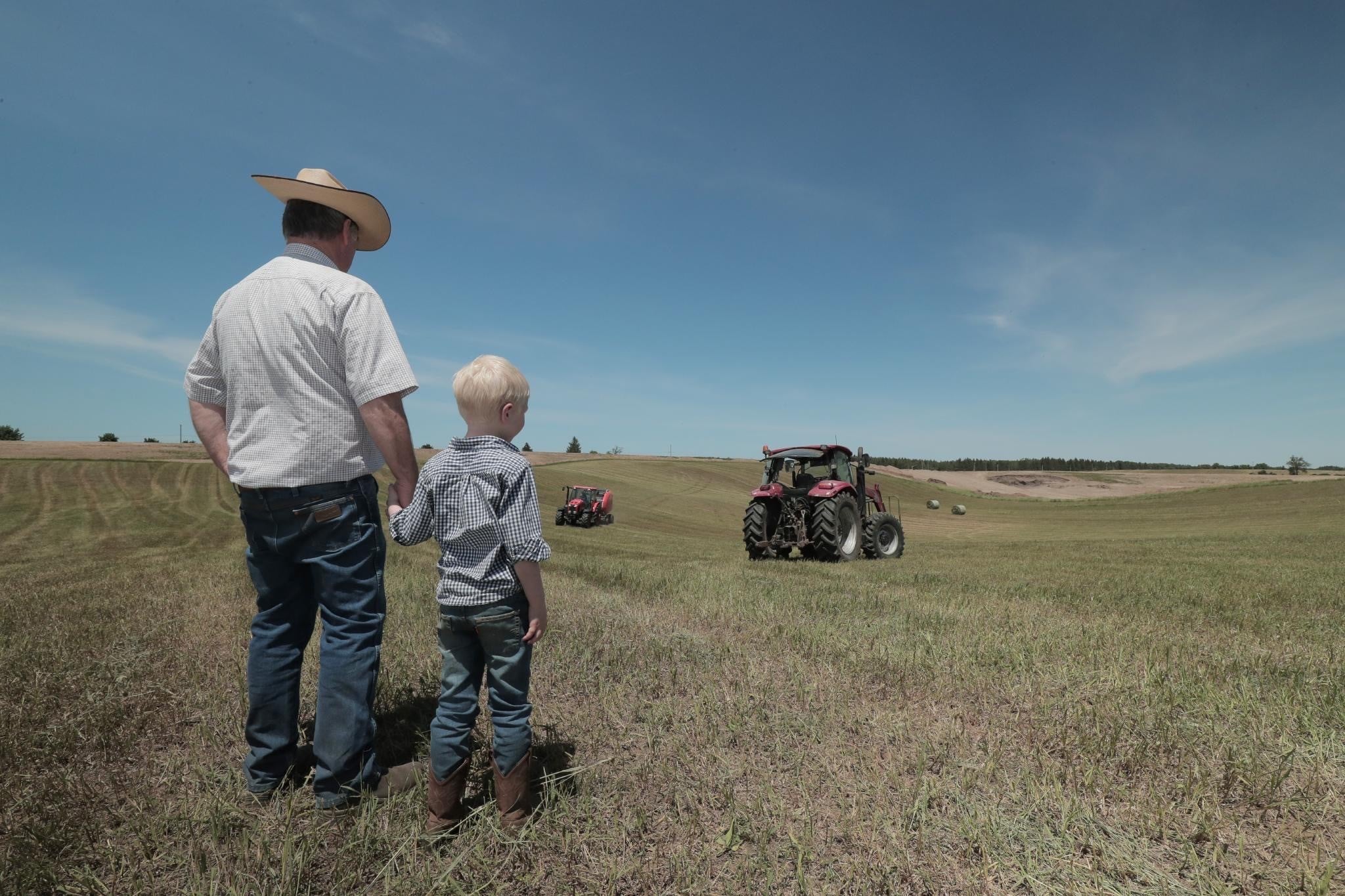You’ve heard all of the bad things about the millennial workforce. These “kids” want trophies just for showing up for work. The entire generation thinks it’s somehow entitled. And if they do show up, they have zero work ethic.
The science agrees, to a point. Data do show that millennials (the generation born between 1980 and 1995) are different from previous generations. But that’s often a good thing. They are better educated than previous generations, millennial women are participating in the labour force at higher rates than ever before, and these so-called “digital natives” have some serious tech skills.
So yes, they are different. But also yes, those differences can contribute to a much stronger team and a much more innovative farm.
Read Also

Where convention and innovation meet
How one Ontario farm is integrating technology into their beef operation.
“We are all shaped by … the context in which we grow and develop,” says Heather Watson, executive director for Farm Management Canada. “While family values and traditions remain strong on the family farm, whether we like it or not, millennials were brought up in a different time, facing different experiences than their forebears, which has in turn shaped their wants, needs and desires in life.”
Knowing what millennials want in the workplace and how to manage the generation well can lead to improved job satisfaction, retention and productivity, not to mention better working relationships.
Try these six strategies to manage millennials on the farm:
1. Provide meaningful work
Millennials want more from their work than just a paycheque. A 2019 survey found that a whopping 90 per cent of workers ages 25 to 40 said it was important that their work had a positive impact on the world.
The work of feeding the world is meaningful in its own right but Karl Moore, associate professor at McGill University and author of the forthcoming book, OK, Boomer: How to Effectively Work with Millennials/Generation Z, believes that farms that prioritize issues like environmental stewardship and animal welfare will have an edge when it comes to attracting and maintaining millennial workers.
“Purpose is a hot topic,” Moore says. “Millennials want to work for companies that are making the world a better place, not just focused on profits.”
Meaning also comes from having ownership over a project or pursuing a passion. Watson suggests you ask younger workers what kinds of tasks they would find most fulfilling and look for opportunities to integrate those into their job duties.
“It’s important to understand what your employees want out of their work and create an atmosphere that helps provide that,” Watson adds.
In exchange for offering meaningful work, millennials will show dedication and loyalty.
2. Encourage professional development
Millennials are the most educated of all generations (70 per cent of those ages 30 to 34 have completed post-secondary education compared with just 55 per cent of Gen-Xers at the same age) and they are eager to continue learning. In fact, 87 per cent of millennials rated professional and career growth and development opportunities as important in their jobs, according to one Gallup poll.
“Instead of expecting job security, the way some boomers do, many millennials are instead seeking employment security,” explains Catherine Connelly, professor and Canada Research chair of organizational behaviour at McMaster University. “They are looking for ways to stay employable or to make finding a new job as easy as possible … (and) are most interested in gaining new experiences that they can add to their resumés.”
Provide opportunities to learn different aspects of the farm business, extend invitations to attend conferences, trade shows and other professional development opportunities, and encourage continuing education. The more your millennial workers learn, the better able they’ll be to provide meaningful contributions on the farm.
“Spend some time talking to your employees about what would make the difference between a good employer and a great employer,” Connelly advises. “Then see how you can incorporate their suggestions in a way so that they are available, in a sustainable way, to all employees.”
3. Embrace mentoring
You’ll spend a lot of time training millennial employees to learn their roles on the farm but don’t overlook opportunities to mentor them, too.
Mentoring can help younger workers with professional and personal development, sharing knowledge and information that is meant to inspire and challenge workers and goes beyond mastering a specific work-related task. This more personal, less hierarchal approach in the workplace is more appealing to millennials and also improves job satisfaction. A Deloitte report showed that 83 percent of millennials with mentors felt satisfied with their working lives.
Moore also suggests embracing opportunities for reverse mentoring. In other words, let millennials serve as mentors to older generations.
“You might know the land better than anyone but, when it comes to technology, millennials know more and might have some great feedback on how to improve land management,” he says.
Justin Williams, a millennial farmer in Picton, Ont., and chair of the Canadian Young Farmers Forum, agrees.
“It’s important for managers to value millennials’ input and take time to listen to our suggestions and ideas,” he says. “We just want the same respect shown to us as other generations.”
4. Promote flexibility
Creating work-life balance is a priority for millennials.
Compared to boomers, this generation is almost two times more apt to have a spouse or partner who is also in the workforce, making it harder for millennials to juggle their work and home lives, get enough sleep and find time for themselves. A flexible schedule can help.
One survey found that 92 per cent of millennials identified flexibility as their top priority in a job and more than one-third would rather have flexible work arrangements than a bigger paycheque.
“Many of us have young families and value our time with our families,” Williams says.
Flexibility doesn’t have to mean work days that start at 11 a.m., extra-long lunch breaks and unlimited vacation time. Instead, Moore says farm managers need to ask, “Can I be flexible in a reasonable way?”
Consider adjusting work hours to accommodate a continuing education class, allowing time off to attend family events or allowing telecommuting when possible. Moore believes that offering flexibility when it’s possible will make millennials more apt to lean in when you need them, including putting in extra hours during harvest time or working overtime during farm emergencies.
Flexibility may also be the key to keeping millennials happy at work.
“Millennials … may be overqualified for the positions that they’re in now,” Connelly says. “Unless you can offer competitive wages and benefits as well as reasonable working conditions, there is a good chance that they will leave for a better position elsewhere.”
5. Offer leadership opportunities
Millennial workers might be the new kids on the farm right now but they need opportunities to step into leadership roles to grow into the next generation on the farm team.
At a recent Agricultural Excellence Conference, Farm Management Canada asked millennials about their roles on the farm and discovered that this is a generation that wants their ideas to be heard.
“Millennials come back to the farm with new experiences and ideas and want a chance to be heard in shaping the future of the farm,” Watson explains. “It’s important to put practices in place where everyone feels heard.”
Offering the opportunity to take the lead on a project, research new technologies or vendors, or explore new markets or value-added products allows millennials to feel more invested in their futures on the farm.
6. Reward achievements – and don’t penalize mistakes
Millennials are often criticized as the generation that didn’t have to win the race to get a trophy. They got a ribbon just for participating. But this generation is competitive and it wants to be noticed.
Managers who show recognition — from a sincere “thanks” for a job well done and cash for achieving performance goals to promotions for top performers — are rewarded with loyal, dedicated workers.
But don’t rush to penalize them for their mistakes.
While millennials often arrive on the job with degrees and are eager to learn and grow in their careers, Williams notes, “Many of us are still relatively new in the workforce so we’re going to make mistakes. Let us make those mistakes and learn from them — just as previous generations have. That’s how we’ll grow as people and employees.”
















